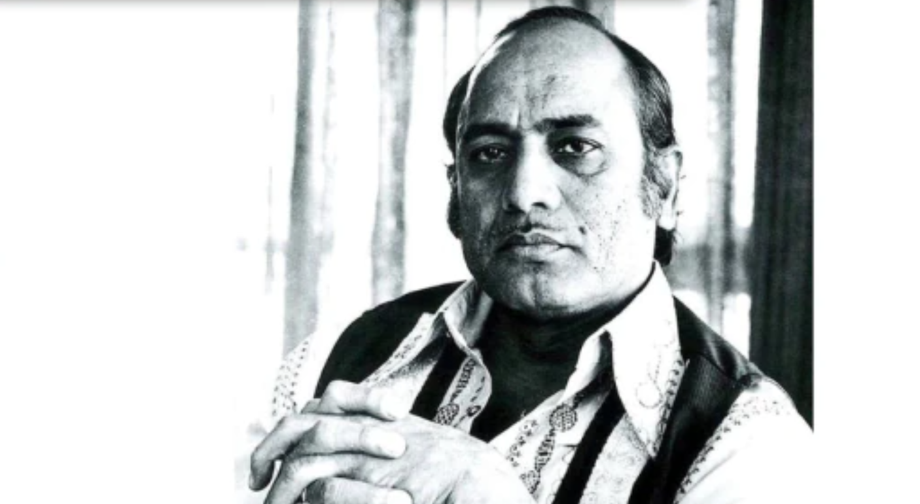Jhunjhunu is a district in the Shekhawati area of Rajasthan. Some families of Muslim singers were living in Luna, a village in Alsisar tehsil of Jhunjhunu. These people were doing classical singing for the last fifteen generations. There was a time to patronize art and music, and the nobles of Shekhawati were said to be always ahead in this matter anyway. Ustad Azim Khan, who was considered a big name of Dhrupad singing in the area, lived in this Luna and often used to sing in gatherings with his younger brother Ustad Ismail Khan.
On 18 July 1927, a child was born to Azeem Khan, who was named Mehdi Hassan. Mehdi means a person who has got divine light to walk on the right path. Mehdi Hassan's childhood, like the rest of the village children, was to be spent in the sandy streets and trails of Luna in grazing goats and playing sports, but he represented a Kalavant family, so at the age of four or five years his father and uncle The first sound blew in his ear. In the light of that first note, when 'Sa' erupted from this child's mouth for the first time, the whole universe must have smiled at once.
once used to repair in a bicycle shop
At the age of eight, Mehdi Hasan was giving his first performance of Dhrupad and Khayal Gaikki in Fazilka, neighboring Punjab province. The next ten-twelfth years were of intense riyaz when Mehdi Hassan, while nurturing his elders, would have mastered most of the ragas with their complexities.
Then came 1947. After partition, the entire Hasan family came to Pakistan. Chichawatni town of Sahiwal district became the work place of Mehdi Hasan. Whatever little savings the family had, it would have been able to support only a few difficult days. Who would think of music in the midst of a constant lack of money and the struggle to survive!
Mehdi Hassan first got a job in a cycle repairing shop named Mughal Cycle House. He also learned the work of repairing cars and diesel-tractors from other masters, fixing the handles, fixing the punctures of the tyres. Soon he became known in the area as a well-known mason and went to the neighboring villages to do the work of repairing tubewells apart from engines.
The only connection left with music was through an old one-band radio. After returning tired from work, he would become the companion of his loneliness. If classical was playing at a station, they would have listened to it for a long time. Then he used to get up and take out the tanpura and do Riyaz for hours.
Mehdi Hassan never stopped doing Riyaz
Those toughest days of life went on becoming weeks, months and years, Mehdi Hassan never stopped doing Riyaz. His soul rested on the peaceful field of music amidst the smell of the black smoke of diesel burning in the engine and the rattling of machines. Waiting for the night to come.
After doing Riyaz like this for ten years, then in 1957 he got a chance to sing Thumri on the radio. After the first performance on the radio, after years, he got to live with people-musicians like himself. He found that after the Partition, the number of people who patronized art and music was almost exhausted. Whatever great singers and musicians were left, they were just wasting their time. He was also not interested in power.
Mehdi Hassan, who had spent the most beautiful time of his life in twenty-five years of practice, was not going to accept this dismay. In the meantime, he had developed a deep understanding of poetry as well as music. He memorized hundreds of ghazals of great masters whose lions he often used in his conversations with friends.
The day when Ustad Mehdi Hassan Khan would have taken the final decision to leave pure classical and make Ghazal singing his area, Kainaat would have been happy and danced on that day.
It was with his poetry that he sang to poetic caliphs like Mir, Ghalib and Faiz as well as relatively newer names like Farhat Shahzad, Salim Gilani and Parveen Shakir.
It was the coming together of the climax of two art forms invented by human civilization. In Mehdi Hassan's tunes, all the ghazals were considered new and the Radif-Kafis wore new clothes.
To say something about his singing is like talking about water. Everyone knows water and all its names.
Ustad Mehdi Hassan Khan had the soft power of a very long and never exhausting practice, with the help of which he broke through the impenetrable rocks of music. Water does the same. Today is the anniversary of the master. A day to remember them!
(Ashok Pandey is the author and translator. This article is being published here courtesy of his Facebook wall.)
read more articles: dhnpress.in

